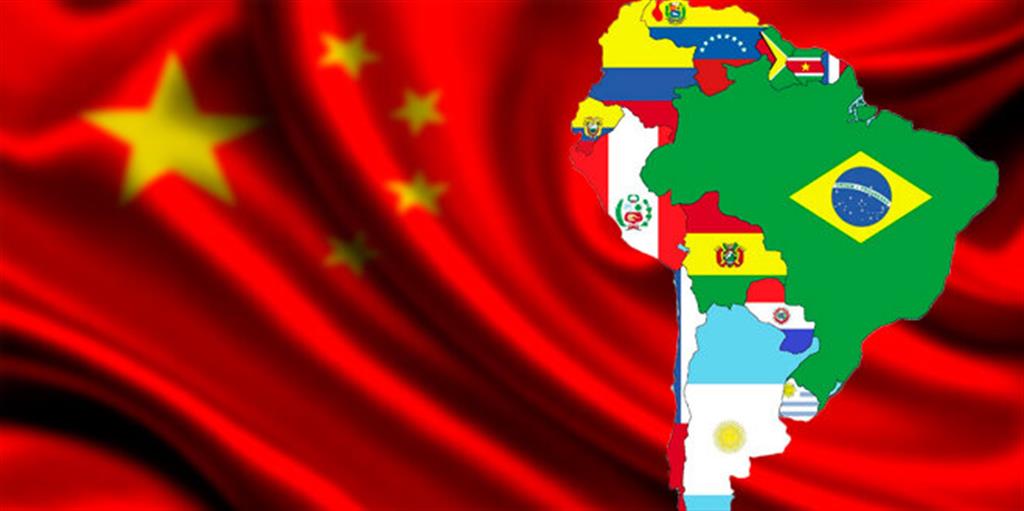By Isaura Diez
Chief China correspondent
Chinese President Xi Jinping made his sixth visit to the region since 2013, highlighting the importance Beijing attaches to its relations with Latin America and the Caribbean.
During his stay, the Chinese leader attended nearly 40 bilateral and multilateral events, while more than 60 cooperation documents were signed in various sectors, including trade, technology, infrastructure and culture.
In Brazil, Xi Jinping held talks with his host, Luiz Inácio Lula da Silva, and the two leaders reaffirmed their commitment to strengthening the comprehensive strategic partnership between their two countries.
Thirty-seven agreements were signed in areas such as communications, health, environment and nuclear energy, reflecting the deep cooperation between the two sides.
In Peru, President Xi Jinping inaugurated the port of Chancay, a flagship project financed by the Chinese state-owned company Cosco.
This port, considered a milestone in the Belt and Road Initiative, is connected to the city of Shanghai through bi-directional routes.
Lin Jian, spokesman for the Chinese Ministry of Foreign Affairs, stressed that his country ‘has always adhered to the principles of mutual respect, equality, mutual benefit, openness, inclusiveness and win-win cooperation in its growing friendly relations with Latin America’.
He added that cooperation between the two regions is characterised by “mutual support and joint work”, without falling into “zero-sum tactics” or “geopolitical calculations”.
Bilateral economic cooperation has intensified in 2024, with China establishing itself as a major trading partner for several Latin American countries and promoting joint projects.
CHINA-CUBA
Exchanges between China and Cuba became more dynamic, with both countries strengthening their traditional cooperation and friendship through numerous visits and initiatives.
In 2024, the agendas of high-ranking officials from the Asian nation stood out on the island, including Luo Zhaohui, President of the China International Development Cooperation Agency (Cidca).
Meanwhile, high-level Cuban representatives have also attended key events in China, such as Vice Premier Jorge Luis Tapia’s participation in the Forum on Global Action for Shared Development in July.
Foreign Minister Bruno Rodríguez arrived in China last June and Esteban Lazo, President of the National Assembly of People’s Power, concluded an official visit in November.
In addition, Fernando González, President of the Cuban Institute for Friendship with Peoples (ICAP), led a delegation to the Asia-Pacific Regional Meeting of Solidarity with Cuba in Beijing.
Bilateral cooperation has made significant progress in areas such as biotechnology, with the inauguration of a 100% Cuban plant in Hebei, and renewable energy, with the inauguration of photovoltaic parks donated to the island by Cidca.
In addition, important donations of rice and medical equipment were made to the Cuban health system, and visa exemptions were announced for Chinese citizens with ordinary passports.
On the cultural front, China was the first country to translate Cuba’s current constitution into its own language.
Similarly, the organisers of the International Tourism Fair of Cuba announced that China would be the guest of honour at the next edition.
The resumption of direct flights between Havana and Beijing on 17 May 2024 marked a milestone in relations between the two countries.
On several occasions, Beijing reiterated its support for Cuba in its fight against the US blockade and called for the island to be removed from Washington’s unilateral list of countries that sponsor terrorism.
With more than 20 official visits and numerous joint projects, these exchanges reflect the strength of the special friendship and mutual political trust, as well as the shared commitment to sustainable development and economic cooperation.
OUTLOOK FOR CHINA-LATIN AMERICA AND THE CARIBBEAN RELATIONS
2024 has witnessed an unprecedented strengthening of China-Latin America relations.In this regard, the Foreign Ministry spokesperson emphasised Beijing’s commitment to promoting the unity and development of the Global South.
As the world enters a new period of turbulence and change, we are willing to work with Latin American and Caribbean countries to continue to help each other, unite and cooperate so that the ‘Chinese dream’ and the ‘Latin American dream’ can integrate and promote each other,’ he said.
The Chinese government has reiterated on several occasions that it seeks friendly relations and cooperation in the region without imposing any conditions, directing its actions against third parties or competing for influence.
Since its creation 10 years ago, the China-CELAC (Community of Latin American and Caribbean States) Forum has become an important platform for strengthening relations between the two sides, and a high-level meeting of this mechanism is expected in 2025.
mh/arb/idm










